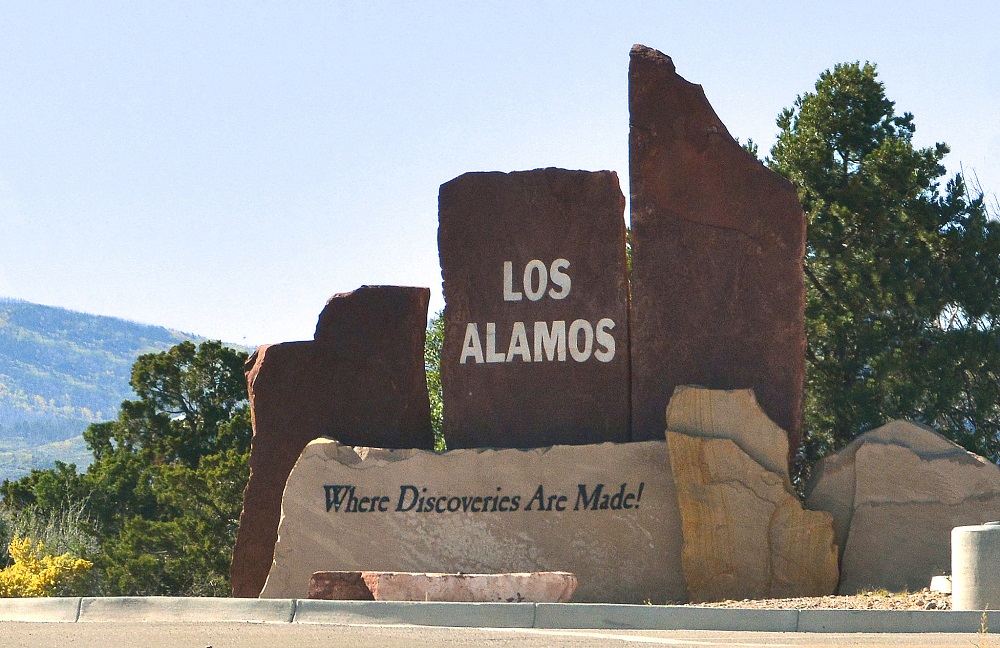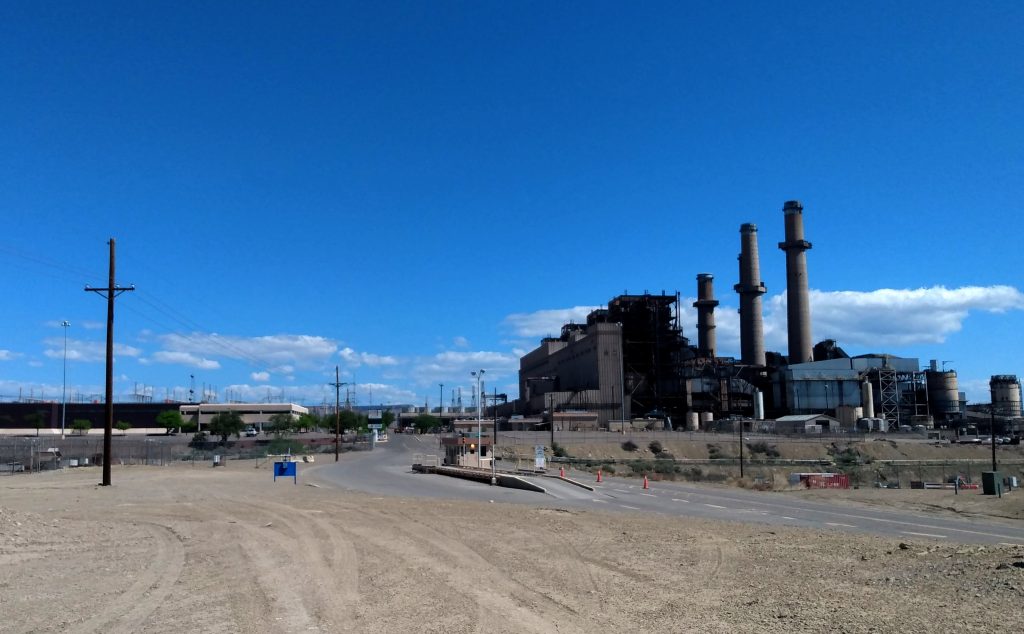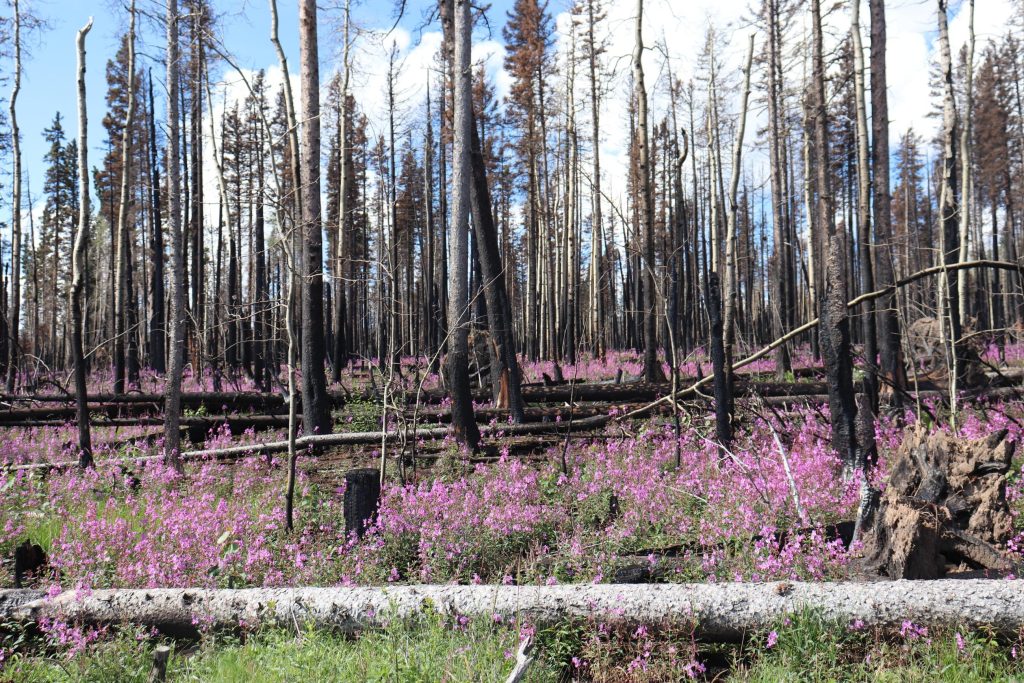Los Alamos has a starring role in a shift in U.S. nuclear policy that’s two presidential terms in the making. Nuclear watchdog groups in the state are concerned about the United States’ evolving nuclear agenda, which will see a sharp increase in plutonium pit production at Los Alamos National Laboratory (LANL).
LANL recently released its $13 billion expansion proposal to accommodate increased pit production at the site. The expansion is part of a wider push across the country to ramp up the nuclear warhead manufacturing machine, according to Greg Mello, executive director of the Los Alamos Study Group.
“We’re on the cusp at the moment of awakening the wolf in the domestic dog,” Mello told NM Political Report, adding that nuclear facilities across the country have increased production shifts and doubled staffs. “Everyone is hiring like crazy,” he said.
Plutonium pits are the radioactive cores of nuclear warheads where the chemical reactions occur that cause the warhead to detonate. The U.S. made thousands of cores during the Cold War, but pit production has all but stopped in the last thirty years.
The ramp-up is years in the making, as successive presidential administrations have struggled to address how to modernize the U.S. nuclear stockpile. But nuclear watchdog groups worry an increase in pit production at LANL would have negative repercussions for the region. While LANL has touted the proposed economic benefits of its proposal for the area, activists argue the dangers outweigh the benefits.
“For the region, it’s a question of priorities,” Mello said. “How much does the region want to identify with the plutonium manufacturing and processing? And is there still going to be this dream that plutonium is going to drive a better economy for northern New Mexico? I can’t think of much more ridiculous than that.”
An evolving nuclear agenda
In February of 2018, the Trump administration released its Nuclear Posture Review, outlining the administration’s nuclear priorities for president’s term. In it, the Pentagon called for at least 80 plutonium pits to be produced per year by 2030, a significant increase over the current level of pit production, which had dropped to zero since 2011.
The tone and messaging of the 2018 Nuclear Posture Review sparked concerns from experts and activists alike. The report cites “increasingly explicit nuclear threats from potential adversaries” and calls for the U.S. to “sustain and replace its nuclear capabilities, modernize [nuclear command, control, and communications], and strengthen the integration of nuclear and non-nuclear military planning.”
The push towards modernizing the U.S. nuclear arsenal actually began under President Barack Obama. During his presidency, Congress mandated the production of 50-80 plutonium pits each year.
“President Obama promised to renew every single warhead and every single delivery system in the stockpile in late 2010. It took a while for some of these things to really get going,” Mello said. “The nuclear warhead business is like a gigantic ship: It does not change course quickly.”
The Trump administration’s track record on nuclear treaties has only increased fears around the U.S.’s evolving nuclear strategy. In May 2018, the White House announced it would withdraw from the Iran nuclear deal; a few months later in October, the administration announced plans to withdraw from the Intermediate-range Nuclear Forces (INF)Treaty with Russia; and administration officials have also suggested that the United States may not agree to extend New START, another arms control treaty with Russia.
These decisions “have profound effects on the overall architecture of arms control,” said John Mecklin, editor-in-chief of the Bulletin of the Atomic Scientists. “Many experts believe that if New START is allowed to lapse, nuclear arms control would effectively be dead, signaling a return to the kind of nuclear arms racing seen in the 1950s and 1960s.”
The near-term urgency to produce 80 pits per year appears to be driven by a warhead replacement program at the Air Force, said Kingston Reif, director for disarmament and threat reduction policy at the Arms Control Association. Reif pointed to a Government Accountability Report from last November, which listed the W78 replacement program and “future warhead programs” as reasons for the new pit requirements. The W78 replacement program, which had been previously halted under the Obama administration, was restarted in the 2018 Nuclear Posture Review.
For anti-nuclear activists, these are all troubling developments.
“That’s what this is all about. The Air Force wants to have a new warhead going into production and deployment in 2030,” Mello said. “What is not happening is enough focus on what all this is for, and why we’re doing it at all.”
A ‘dirty, dirty process’
Plutonium pits are central to nuclear weaponry. They are the “radioactive cores of modern nuclear weapons,” said Jay Coghlan, executive director of Nuclear Watch New Mexico. He added that the pits themselves are weapons. “It was essentially a plutonium pit that destroyed Nagasaki on August 9, 1945,” Coghlan said.
Nuclear weapons researcher and analyst Russ Wellen once described plutonium pits as orbs from hell. “Locus of the most potential energy on earth, it’s the closest mankind has ever come to producing a devil in a bottle,” he wrote.

The devices are small, hollow spheres made of 2-3 kilograms of plutonium 293. They are roughly the size of a grapefruit and are named “pits” for their resemblance to the center seeds of stone fruit.
The pits comprise the primary stage of modern, two-stage nuclear weapons. In the nanoseconds before detonation, tritium — a radioactive gaseous form of hydrogen — is injected into the hollow of the pit. The pit is then imploded, reaches criticality and induces fission. This, in turn, induces fusion in the secondary stage, which leads to a nuclear explosion.
Local groups fear the communities surrounding LANL will bear the environmental brunt of plutonium processing and pit production. “It is a dirty, dirty process,” Coghlan said.
The devices were first developed at LANL in the 1940s, though the design and manufacturing process has evolved since then. Pit production has historically been rife with safety and environmental issues at facilities across the country. During the Cold War, the federal government established the Rocky Flats facility outside Denver, Colorado, dedicated to pit production. It was closed in 1989 after the EPA and FBI raided it as part of an investigation into environmental crimes at the facility. Since then, LANL has remained the only facility in the country capable of producing plutonium pits.
RELATED: Key sites proposed for nuclear bomb production are plagued by safety problems
LANL has its own history of problems with pit production, Mello said. “The facility was shut down almost completely, for three years, then partially for four years, then it was started up and shut down again. It’s been shut down several times, over a 20 year period, for safety violations, a pattern of infractions of criticality rules,” he said.
According to current plans, LANL facilities will conduct liquid processing of plutonium to render it into a metallic form, before casting it into the hollow pit formfactor. That process “generates significant quantities of transuranic waste,” Coghlan said, referring to human-made radioactive waste.
LANL will be responsible for producing 30 pits per year, while the remaining 50 pits will be produced at the Savannah River Site (SRS) in South Carolina. Ironically, SRS plant was initially built to reduce the amount of weapons-grade plutonium. It is now being repurposed to build pits.
And New Mexico will bear the environmental brunt of the byproducts. Coghlan noted that WIPP is the only facility in the United States that can accept transuranic waste.
Grasping a tiger by the tail
Altogether, increased geopolitical tensions between the U.S. and the other nuclear powers, coupled with president Trump’s brash approach to diplomacy and a new charge to increase pit production, has nuclear activists worried.
“Sooner or later, all of this will fall in on itself, either through a nuclear war, or an economic collapse, or the mounting environmental catastrophes. Sooner or later, this business will be seen as mad,” Mello said. “But when? How long will it take to raise consciousness about this?”
He was also critical of the state’s congressional delegation for its role in the plans. “There has been no significant concern expressed by any elected New Mexico official,” he said. “What the Los Alamos community has not really woken up to is that when the New Mexico [politicians] want this mission, they are really grasping a tiger by the tail.”






















